PROGRAMS
Join thousands of people who organise
work and life with Novatr.
Traditional Take On The Modern: Parametricism And Culture
simar kindra
04 mins read
August 24

Before we proceed any further - what is parametricism or parametric design?
The recent bamboo structure called the Camboo Pavilion is the perfect example of combining parametric design with elements of nature and local traditions. The pavilion was built in Freedom Park in Phnom Penh, Cambodia, for the Building Trust’s 2017 International Bamboo Festival. The brain behind this landmark centerpiece is the Italian firm, Luca Poian Forms that attempts to use this structure as a reflection of the character of Cambodia’s cultural landscape.
1 | Materials
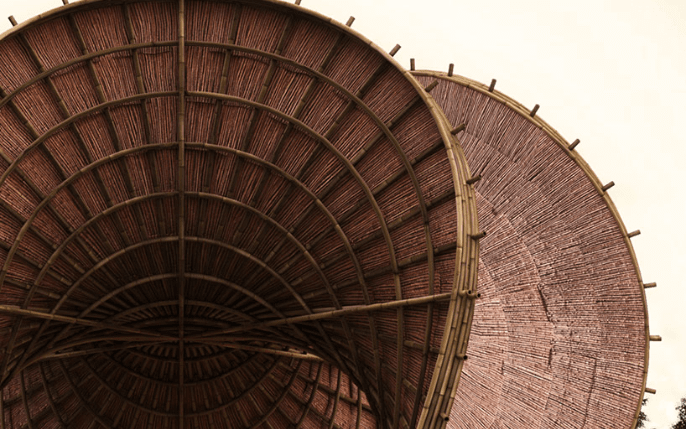
The four wings of the pavilion enclose a cavernous space within Image Source: www.parametric-architecture.com
The pavilion contains a primary skeleton of bamboo beams that form the outer edges of the four hyperbolic wings with a secondary frame of bamboo members that supports the fabric stretched out across it. Though Bamboo has long been used to execute traditional architectural endeavors, in recent years, it has also been used in modern constructions due to its remarkable tensile strength and extremely low weight.
2 | Form
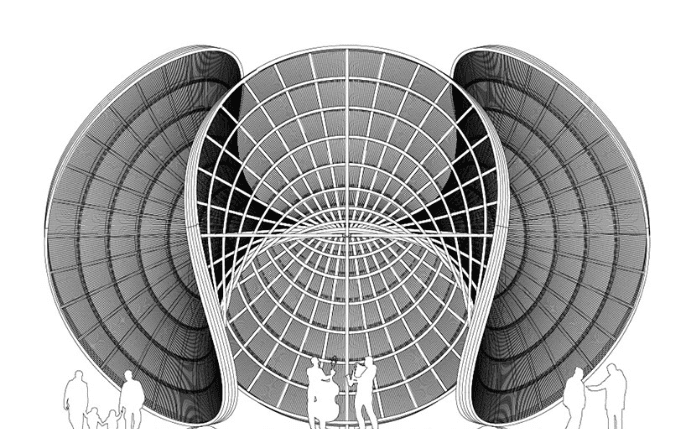
By studying the stresses generated in the materials due to gravitational forces, a form that effectively eliminated shear forces was derived. It ensured the strength and stiffness of the pavilion and touches the ground in only four points.
The concept was further inspired by two prominent experiments. The first being Frei Otto’s demonstrations wherein he attempted to produce new lightweight and tensile architectural structures by using soap film models. The second, Felix Candela’s fascinations and analysis of shell structures that he conducted throughout his career. He was responsible for the derivation of shell forms that would eliminate tensile forces in concrete during construction.

3 | Spatial Experience
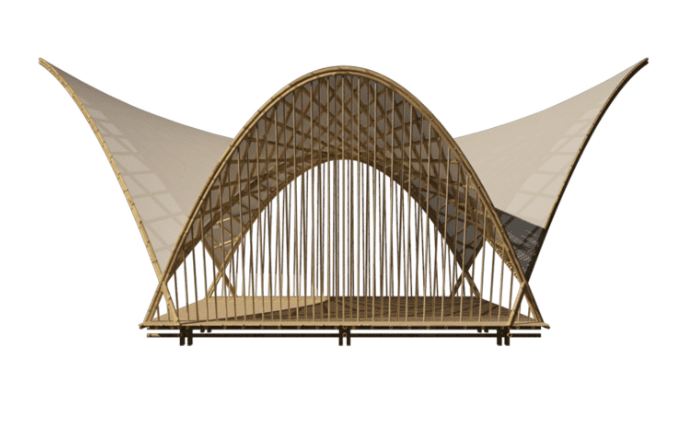
The structure has four wings- two long and two short- that take their shape after hyperbolic parabolasImage source: www.archdaily.com
The structure shades the cavernous space within it and offers it ample protection from the elements. It utilizes bamboo’s inherent properties and enhances its structural and aesthetic qualities.
4 | Local Link
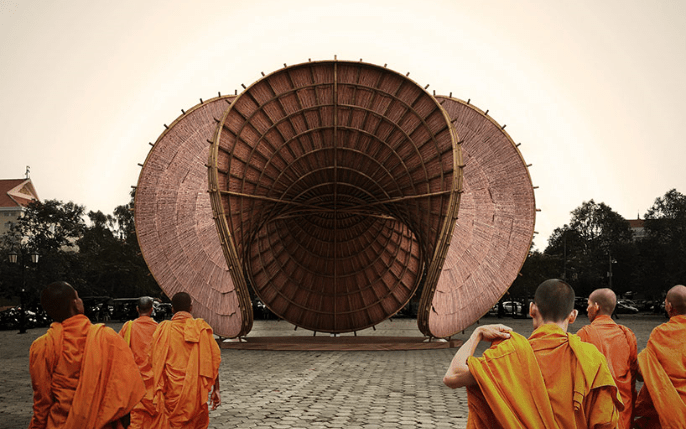
The unique shape of the pavilion is made possible by the strength and flexibility of bamboo Image Source: www.parametric-architecture.com
The pavilion is the archetype of the union between traditional materials and today’s technology. Its textured surface is inspired by the region’s traditional weaving practice and its unique geometric form (also called an Enneper surface since it intersects itself) is derived from the Khmer period iconography in mimicking the radiating arms of ‘Prajnaparamita’, the Perfection of Wisdom.
5 | Sustainable Solution
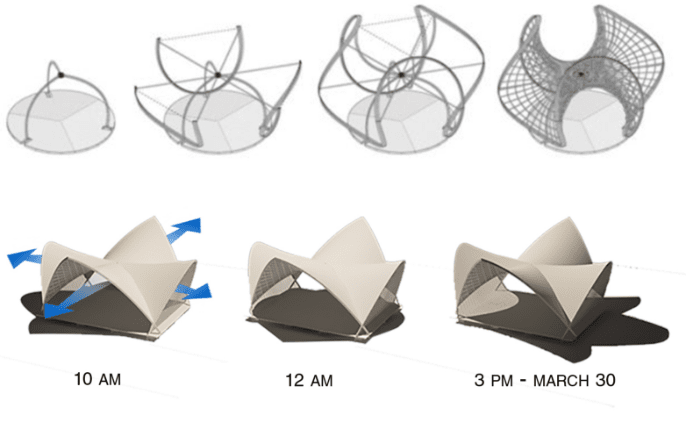
A sciographic representation of how the pavilion responds to the different times of the day Image source: www.archdaily.com
Bamboo is an inexpensive material that can be easily sourced. Its quick growth renders it a renewable resource the use of which does not negatively impact the environment.
By using locally sourced bamboo to create the pavilion, Luca Poian Forms strives towards reducing the project’s carbon footprint and making it sustainable. They have drawn inspiration from the local tradition of bamboo weaving in creating the pavilion. In doing so, they have also ensured its textural allusion renders the structure contextually relevant to the architectural culture of Cambodia.
The Future Of Parametric Design
Parametricism is a vast field with an infinite potential that is just waiting to be explored. By combining the modern practice of parametric design with vernacular traditions, one can ensure that the design field continues to evolve while also making certain that the local culture is not forgotten.
It is imperative to be able to bridge the wide chasm experienced between the aesthetics and functionality of various local materials. You can do so through these parametric design workshops in India that will help further your journey into the field. Novatr hopes today’s generation can understand technology and carry forth tradition to unveil several new avenues of design.

Join 100,000 designers who read us every month